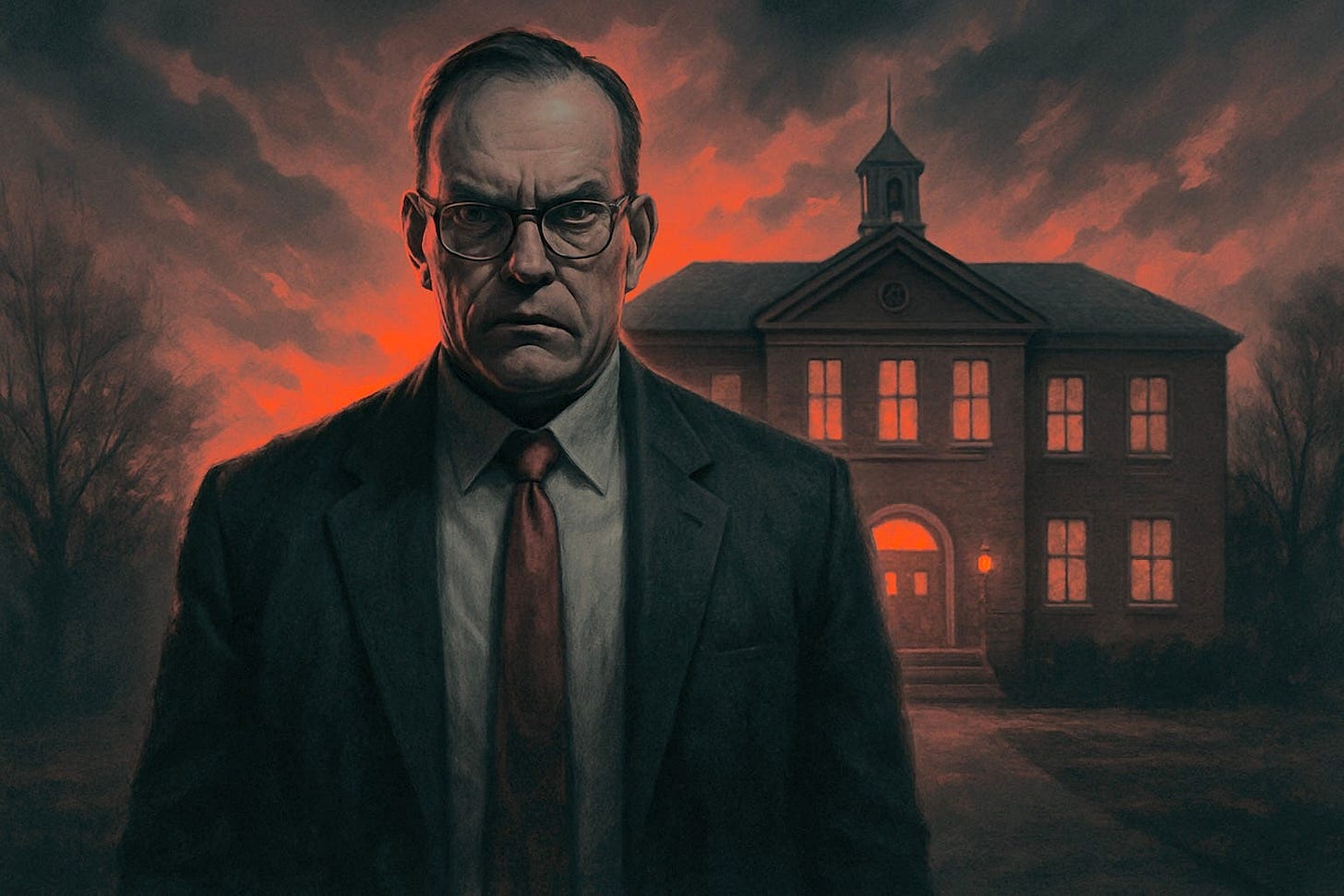The Principal Thing*
Wherever bullies gather, HE is there. A short story for our current time.
In the beginning, it was just a boy.
Arnold wasn’t especially large or clever. But he was mean, and for a while, that was enough. He pushed, stole, tripped kids in the halls. His jokes were cruel, and they always landed. He smelled fear, and he knew how to use it. The teachers didn’t stop him, not really. Most of the other kids just wanted to survive. So…



